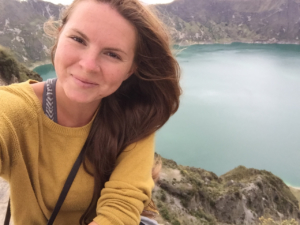Family Peer Support
Sometimes when a loved one needs help for their mental illness, you as a family caregiver are left in the dark. Imagine having someone for YOU to talk to who can answer your questions, help guide you through the healthcare system, and provide you with helpful resources?
AMI-Quebec offers information and support to caregivers of a loved one struggling with mental health issues. One way that we do this is by providing a family peer support worker to families who use the healthcare services of the territory of the CIUSSS Centre-Ouest-de-l’Île-de-Montréal (CCOMTL). A family peer support worker with caregiving experience meets one on one with families. Their role is to support and to listen to caregiving families going through various challenges while navigating the healthcare system. Depending on the needs of the caregivers, the family peer support worker will share coping skills and additional useful resources in their community. Based on their own experience and on their knowledge of the healthcare system they can also provide information about the hospital treatment units, the role of an emergency unit, the various teams and departments of the CLSC and their roles, privacy laws, rights of patients, and court order procedures.
For more information about the Family Peer Support Service in the CIUSSS Centre-Ouest-de-l’Île-de-Montréal, call AMI-Quebec: 514-486-1448.
Family Peer Support in the community of the CCOMTL is a project developed by AMI-Quebec in partnership with the Jewish General Hospital.
Meet Our Family Peer Support Worker
Natalie Boileau
What an interesting time in history to be starting such an important and complex position. Ironically, I am fighting to provide mental health services to caregivers of those supporting a loved one with a mental illness, all whilst trying to maintain my mental health in this pandemic. I am now a few months into my new job as family peer support worker at AMI-Québec. I have yet to meet all my colleagues in person…I wonder when that will be.
Within my role, I have the exciting opportunity to collaborate with the CIUSSS Centre-Ouest-de-l’Île-de-Montréal in developing and implementing a service that provides support to caregivers of those with mental illness. I must admit that marrying two cultures — public system and community organization — is quite the challenge. Since the beginning of the year, I have been meeting with many healthcare providers and intricately observing, noting, and integrating all that I can in order to understand how best a community organization and the public system can work together for an efficient and long-lasting partnership. Trust me, it’s not obvious.
Professionally, I have worked in the field of mental health for almost a decade, mainly with people who have a mental illness. It has been the most enriching and wonderful experience I could have asked for, thus far. But through offering services to those with a mental illness, I have been a witness to how families and friends are affected by what is going on with their loved one. It was never part of my job description to address these most important feelings, needs and concerns, yet I felt like I had a responsibility in doing so since I was the person who spent the most time with their loved one. As time went on, my desire to provide support, education and advocacy for these families grew stronger and stronger but again, I was told it was not part of my job. So, I made the decision to turn desire into action. And here I am today.
As a caregiver myself, I find my most significant strength and challenging obstacle is love. I used to think it didn’t make sense to reach out for support because no one could understand what our family was going through, or what I felt, or what I was dealing with as a caregiver to my loved ones. I thought, “They don’t know our history, our family, our day-to-day reality. They simply don’t know us and therefore, they won’t be able to help”. I also thought, “I don’t need help, my loved one does”.
But I was wrong.
Caregivers have so much in common, and there are many services and programs that address specific situations. To provide me with support, it wasn’t imperative that ‘they’ know ‘all’ of me or my loved ones; all they need to know and understand is that caring for someone with a mental illness is challenging and can take over, for better or worse. And they do know. And here at AMI-Quebec, we all know because we’ve lived it and felt it too.
Caregivers don’t need to do it alone or isolate ourselves in our struggles. Breaking our own isolation begins when we start to talk about it, share our stories, and realize that more and more people have been keeping it to themselves, too. Even those we are closest to. We are not alone. Everyone has something. The only way to normalize and break the stigma that involves those touched by mental illness is to build a program that offers the opportunity to share these experiences, learn from them, ask questions, get information, educate ourselves, and accept support. Together we are more powerful.
I feel as though I’ve had the opportunity to observe and better understand what someone with a mental illness goes through, to learn and analyze how the healthcare system provides services to them and their families and the challenges and struggles they face but also experience it on a personal level, with my loved ones. I am confident that I am equipped with a good foundation and am now ready to expand and share this knowledge to help and support more people. I am proud and honoured to have been chosen for the role of family peer support worker, which provides me with not only the duty but the fuel to move forward.
I have already learned so much about myself and all that should and can be accomplished since I began in January. Now imagine what else can be gained in the years to come. So, let’s get to work!
–Natalie Boileau
Sign up for our emails to stay in touch
Please also follow us on:




